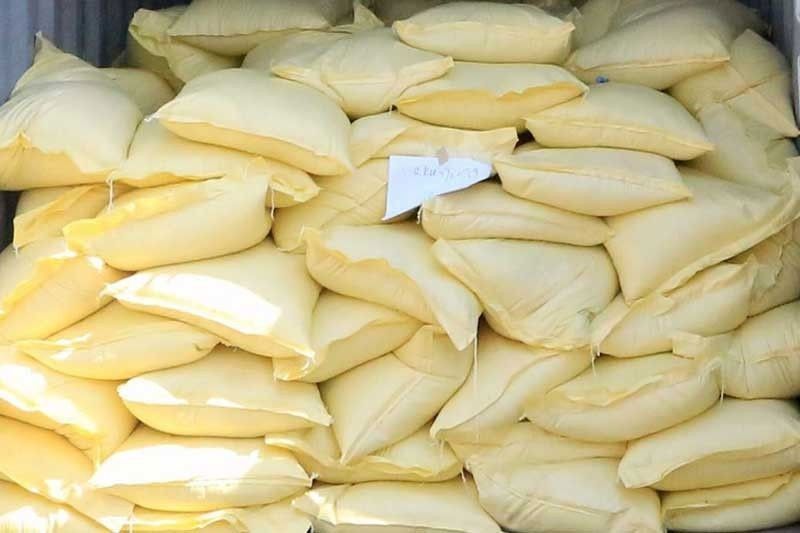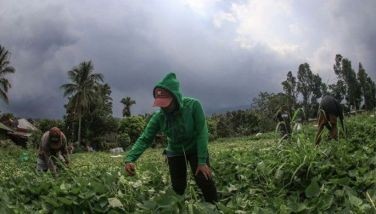Rice Tariffication Law working well – Villar

MANILA, Philippines — The Rice Tariffication law (RTL) is working well to stabilize prices of the staple and assist farmers to modernize and increase productivity, Sen. Cynthia Villar said yesterday.
Villar, who chairs the Senate committee on agriculture and food and is principal author of Republic Act 11203, issued the statement amid moves by some groups to have the law abolished despite its successful implementation, particularly the P10-billion Rice Competitiveness Enhancement Fund (RCEF).
“On its second year the RTL and RCEF implementing agencies continue to deliver their commitment in ensuring the availability of affordable and quality rice to consumers, while increasing the productivity and incomes of rice farmers, despite the pandemic,” she said as she congratulated the various agencies implementing the law.
The P10-billion RCEF allocation for this year has been released by the Department of Budget and Management and is ready to be disbursed to farmers through the Philippine Center for Postharvest Development and Mechanization (PhilMech), Philippine Rice Research Institute (PhilRice), the Agricultural Training Institute (ATI) and the Technical Education and Skills Development Authority (TESDA) as well as government financial institutions like Land Bank of the Philippines (LBP) and the Development Bank of the Philippines (DBP), according to the senator.
The RTL, signed in 2019, liberalized rice imports and imposed a tariff of 35 percent on imports from Southeast Asian countries whose proceeds provide funding for the RCEF to be used to help farmers modernize and improve productivity.
The RCEF covers the 42 inbred rice-producing provinces across the country, covering 656 municipalities.
Villar noted that the 2020 palay harvest was 19.4 million metric tons (MMT) or 3.3 percent higher than the 18.81 MMT output in 2019, surpassing the previous high of 19.27 MMT in 2017.
The figure is equivalent to a rice adequacy level of 90 percent; average harvest per hectare is 4.09 MT of palay. The yield recorded for the October-December 2019 period was 4.1 MT per hectare compared to the 3.9 MT per hectare yield recorded for the October-December 2018 period.
Under the RCEF, P3 billion is set aside yearly for certified inbred seeds, at 40 kilogram per hectare, distributed for free, according to PhilRice.
In 2020, 674,400 farmers received 1.68 million bags of free certified inbred rice seeds. These were planted in 843,000 hectares in 948 RCEF municipalities nationwide, or 98.5 percent of the targeted 962 towns for seed distribution.
For last month, PhilRice reported that it has achieved 100 percent seed deliveries for the dry season or 1.7 million bags of high-quality inbred rice seeds to 957 municipalities from the target 55 provinces all over the country.
More than half a million farmer-beneficiaries received 20-kg bags in coordination with local government units to cover 789,267 hectares.
PhilMech reported it has distributed P5 billion worth of farm machinery and equipment (FME) to qualified farmers’ cooperatives and associations (FCAs).
To date, 15,918 units of various FME were already procured out of the targeted 23,378 units. This were delivered and distributed to 3,804 FCAs, thus benefitting at least 1.35 million farmer-members.
PhilMech studies showed that mechanizing rice production operations, from land preparation to harvest, could reduce the production cost of palay by P2 to P3 per kg.
For this year, the target intervention shall be for drying and milling facilities to complete the value chain control and lessen post-harvest losses and depressed farm gate price.
Currently, the cost of producing palay in the Philippines is at P12.72 per kg, while it is P6.22 in Vietnam and P8.86 in Thailand, according to studies by PhilRice.
For loans, a total of P1.584 billion was lent to hundreds of FCAs in RCEF program areas, being served by the LBP at P968 million and the DBP at P616 million.
The ATI, PhilMech and PhilRice receive a yearly allocation of P100 million each from the RCEF for training and extension of farmers, technicians and other rice industry stakeholders.
TESDA has a yearly budget for extension amounting to P700 million.
To enhance capacities of rice farmers to become competitive in rice production, the agencies, under the RCEF, have obligated P16.2 billion and disbursed over P7.1 billion from the P20-billion allocation from 2019 to 2020.
- Latest
- Trending

































